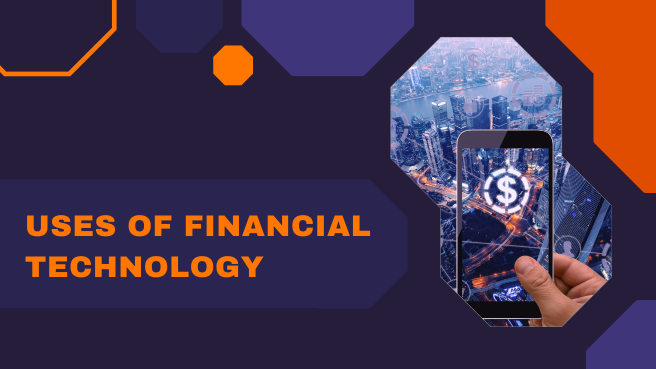
In today’s rapidly evolving digital landscape, the fusion of finance and technology, commonly known as financial technology or FinTech, is revolutionizing the way we manage and interact with our finances. This innovative domain is not only making financial services more accessible and efficient but is also reshaping the industry’s future. Through this article, we will delve into the various uses of financial technology, offering valuable insights and data to better understand its impact on both consumers and businesses alike.
Simplifying Payments and Transfers
One of the most notable uses of financial technology is in simplifying payments and money transfers. Digital wallets, mobile payment apps, and peer-to-peer (P2P) payment platforms have made transactions more convenient than ever. According to a report by Statista, mobile payment transactions are expected to surpass $8 trillion by 2024, highlighting the growing reliance on digital solutions for everyday financial activities. This shift not only makes transactions quicker but also more secure, thanks to advanced encryption technologies.
Enhancing Personal Financial Management
Financial technology has revolutionized personal financial management through apps and tools that provide users with real-time insights into their spending, savings, and investment patterns. These applications offer personalized advice, budgeting tools, and automated savings options, making it easier for individuals to achieve their financial goals. For instance, apps like Mint and YNAB (You Need A Budget) have gained popularity for their user-friendly interfaces and comprehensive financial tracking capabilities.
Transforming the Lending Landscape
The lending sector has witnessed a significant transformation with the advent of FinTech. Traditional bank loans, known for their lengthy and complex approval processes, are being replaced by online platforms that offer quicker and more flexible lending solutions. Peer-to-peer lending platforms, for example, connect borrowers directly with investors, bypassing traditional banking intermediaries. This not only speeds up the loan approval process but also opens up opportunities for individuals with less-than-perfect credit scores to secure funding.
Democratizing Investment and Trading
Financial technology has made investment and trading accessible to a broader audience. Online brokerages and robo-advisors have lowered the barriers to entry, allowing individuals with minimal investment knowledge or capital to participate in the stock market. Platforms like Robinhood and Betterment offer user-friendly interfaces and low-cost investment options, encouraging more people to explore stock trading and wealth management services.
Revolutionizing Insurance
The insurance sector is also experiencing a FinTech revolution, with technology-driven solutions offering personalized policies, streamlined claims processing, and risk assessment tools. Insurtech startups leverage big data, artificial intelligence, and IoT (Internet of Things) devices to tailor insurance products to individual needs, improve customer experience, and reduce fraud. This approach not only benefits consumers through more competitive pricing but also enhances operational efficiency for insurers.
Improving Financial Inclusion
One of the most impactful uses of financial technology is its role in enhancing financial inclusion. FinTech innovations have made financial services accessible to underserved and unbanked populations around the world. Mobile banking and microfinance platforms, for example, provide essential financial services to individuals in remote or economically disadvantaged areas. According to the World Bank, FinTech initiatives have contributed significantly to increasing the global banked population, bringing financial empowerment to millions.
Ensuring Security and Compliance
As the financial landscape becomes increasingly digital, ensuring the security of transactions and compliance with regulatory standards has become paramount. Financial technology companies are at the forefront of developing sophisticated security measures, including biometric authentication, blockchain technology, and advanced fraud detection algorithms. These innovations not only protect users from cyber threats but also help financial institutions comply with stringent regulatory requirements.




